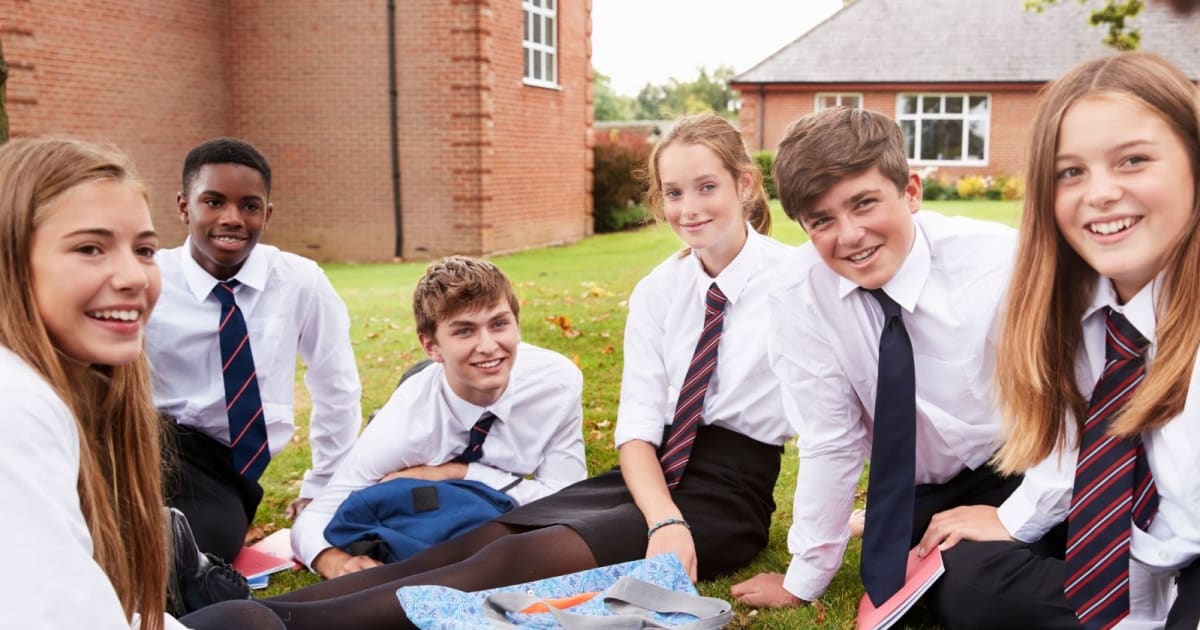A large coalition of children’s charities, teachers, and parents are calling for the UK government to urgently address the deepening children’s wellbeing crisis by introducing universal wellbeing measurement across England.
25 of the UK’s leading organisations across youth, education and mental health* back a universal wellbeing measurement programme based on a new report by think tank Pro Bono Economics (PBE) including The Children’s Society, Anna Freud and The NSPCC.
60% of teachers and 73% of parents support wellbeing measurement in schools.**
The report addresses the scale and causes of the crisis; the benefits of a universal wellbeing measurement programme and a 10-point plan on how to roll-out measurement within schools at a neighbourhood level.
Poor youth wellbeing leads to lower productivity, poorer educational outcomes, higher healthcare costs, and greater demand for social services.
While factors such as school culture, family communication, and teachers’ attention to students’ emotional wellbeing can protect against low wellbeing, the report highlights that the causes are still not fully understood. The PBE report states that factors affecting wellbeing such as bullying, loneliness, family issues, lack of exercise and school environments remain underexplored, leaving many children at risk.
The growing crisis
The number of children reporting low wellbeing in the UK is rising faster than in nearly every other OECD country.
In 2022 alone, 197,000 young people — equivalent to the population of Milton Keynes — left secondary school with low wellbeing. The crisis has been exacerbated by Covid, but the decline has been ongoing for over a decade.
Call for universal wellbeing measurement
By systematically and regularly measuring children’s wellbeing, government bodies, schools, charities, and healthcare providers will gain vital data to develop better targeted support and evaluate what works to improve young lives.
The PBE report emphasizes that measurement would be invaluable in understanding the experiences of vulnerable groups, including children with special educational needs (SEND) and care-experienced young people, who are underrepresented in current data.
According to the report, Scotland has already shown that collecting data can help with better decision making at a local and national level. In England, local approaches to wellbeing measurement have been set up in some areas and are already making a difference.
Roadmap to implementation
The coalition urges the UK government to take immediate steps and establish a cross-sector working group to guide the rollout of universal wellbeing measurement. This expert body would advise on the practicalities of implementation, including the role of schools, the frequency of measurement, and how to involve young people’s voices in the process.
Support for change
Parents, teachers, charities, and school-based mental health practitioners are united in the belief that better data will lead to better outcomes for children. The coalition believes that by collecting this data, decision-makers will be better equipped to direct resources where they are needed most, improving children’s lives both now and in the future.
Nicole Sykes, Director of Research, Policy and Communications at Pro Bono Economics, said:
“The wellbeing of the UK’s children and young people is not just a moral issue—it’s an economic imperative. Without a clear understanding of where and why children are struggling, we cannot hope to implement the targeted solutions that are desperately needed. A universal wellbeing measurement is essential if we are to address this growing crisis once and for all.
“Scotland and Wales have already begun to take valuable steps in this direction, but England is lagging behind. The upcoming spending review and Children’s Wellbeing Bill are opportunities for our new government to catch up and prioritise the wellbeing of our most vulnerable children.”
Mark Russell, Chief Executive at The Children’s Society said:
“This report makes a compelling case for a national measure of children’s wellbeing, a call we’ve been making for over a decade. Listening to young people’s experiences has consistently shown the need for a large-scale approach to properly understand their needs.
“A national wellbeing measure would provide the insights required to shape policies that genuinely reflect young people’s realities. These findings highlight the growing urgency, and we urge the Government to act swiftly on this recommendation.”
James Robertson, National Director for #BeeWell said:
“The evidence is clear – young people’s wellbeing across the UK remains substantially and stubbornly lower than peers internationally. This cannot continue and we’re calling on the new government to take urgent action which must start with the rollout of a universal wellbeing measurement programme.
“Only by listening to young people’s voices can we begin to truly understand what’s driving this decline, and act to address this crisis. This is exactly what we do at #BeeWell, and armed with these insights, schools, local government and civil society, can take informed and targeted action to address the issues young people recognise as important and turn the tide on young people’s wellbeing.”
